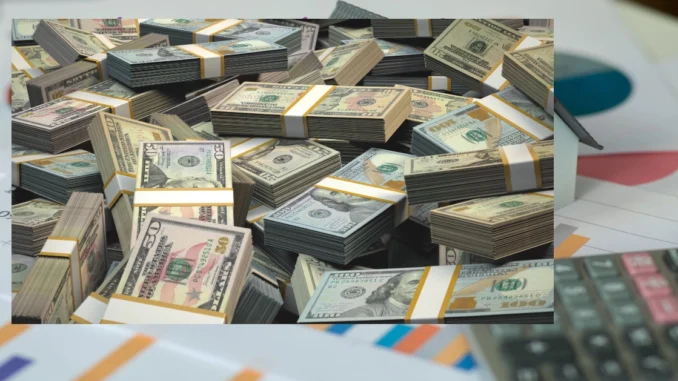
While most of us rely on digital payments, physical currency remains a staple for many. However, not all cash is created equal, and certain $50 and $100 bills may not be accepted at stores due to damage or being classified as “mutilated.” If you’ve encountered this problem, here’s what you need to know about such bills and how to redeem them.
Table of Contents
Why Some Stores Reject Certain Bills
Retailers have the right to refuse damaged or mutilated bills, as outlined by the Federal Reserve. According to federal guidelines:
“Private businesses are free to develop their own policies on whether to accept cash unless there is a state law that says otherwise.”
This means stores are not obligated to accept bills that are:
- Ripped, torn, or taped.
- Significantly damaged or altered.
Businesses may refuse such bills to avoid the risk of handling counterfeit or unusable currency.
What Are Mutilated Bills?
The U.S. Treasury Department defines a mutilated bill as one that:
- Has less than half of the original note intact.
- Is so damaged that its authenticity or value is questionable.
Common causes of mutilation include:
- Fire, water, or chemical damage.
- Damage from animals, insects, or rodents.
- Decomposition from burial or improper storage.
Housing Grants for Disabled Veterans in 2024: Transforming Homes, Enhancing Lives
2025 Veterans Disability Compensation Rates, Changes & Benefit Trends
What Should You Do If You Have Mutilated Bills?
If you possess damaged $50 or $100 bills, you can redeem them through the Bureau of Engraving and Printing (BEP). Here’s the process:
- Contact the BEP:
Reach out to the bureau for instructions on submitting your bills. - Send in Your Bills:
You’ll need to mail the damaged bills to the BEP for authentication. - Wait for Processing:
The BEP will examine the bills to verify their authenticity and value. - Receive a Check:
Once validated, the BEP will issue you a check for the value of the damaged bills.
How Long Does the Process Take?
This is not a quick fix. The Treasury Department warns that processing times for mutilated currency can range from three months to three years, depending on the complexity of the case.
Protect Your Currency
To avoid issues with mutilated bills, ensure your cash is stored securely in dry, safe conditions away from potential hazards like fire, water, or pests.
VA’s Native American Direct Loan Program 2025 Opens New Doors to Homeownership
VA Health Care Report 2024: Women Veterans Report Higher Satisfaction, But Gaps Remain
VA Announces Lower Life Insurance Premiums for Veterans, Service Members, and Spouses in 2025
Damaged bills don’t have to be a lost cause. While stores may refuse them, the Bureau of Engraving and Printing offers a clear pathway to redeem their value. Although the process may take time, it ensures you don’t lose out on your hard-earned money.
If you’ve got damaged $50 or $100 bills, don’t discard them—redeem them!
Leave a Reply